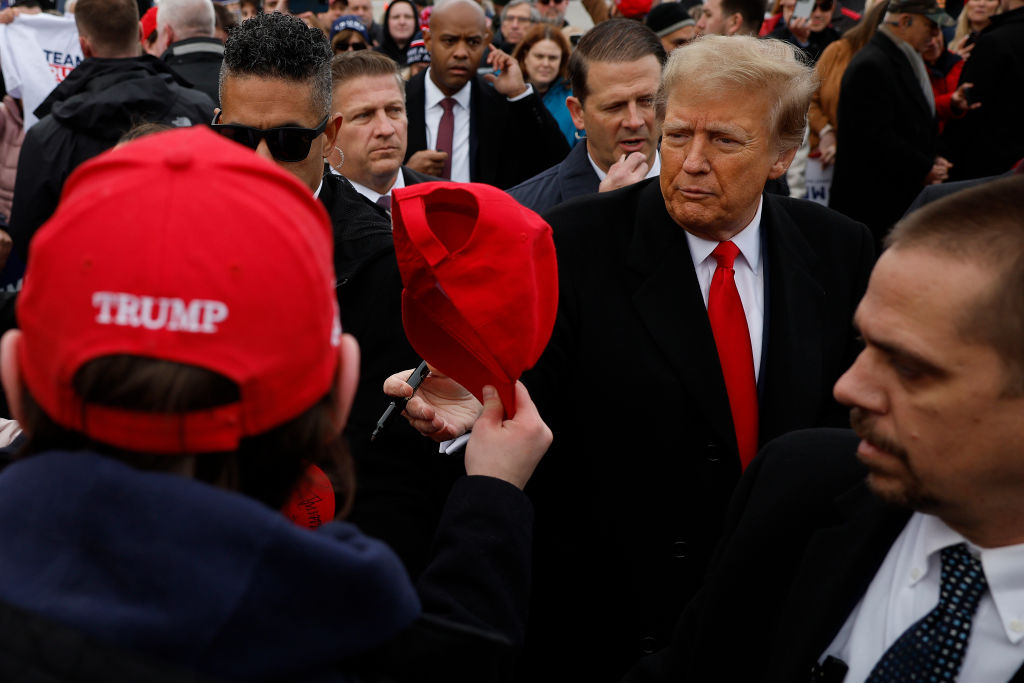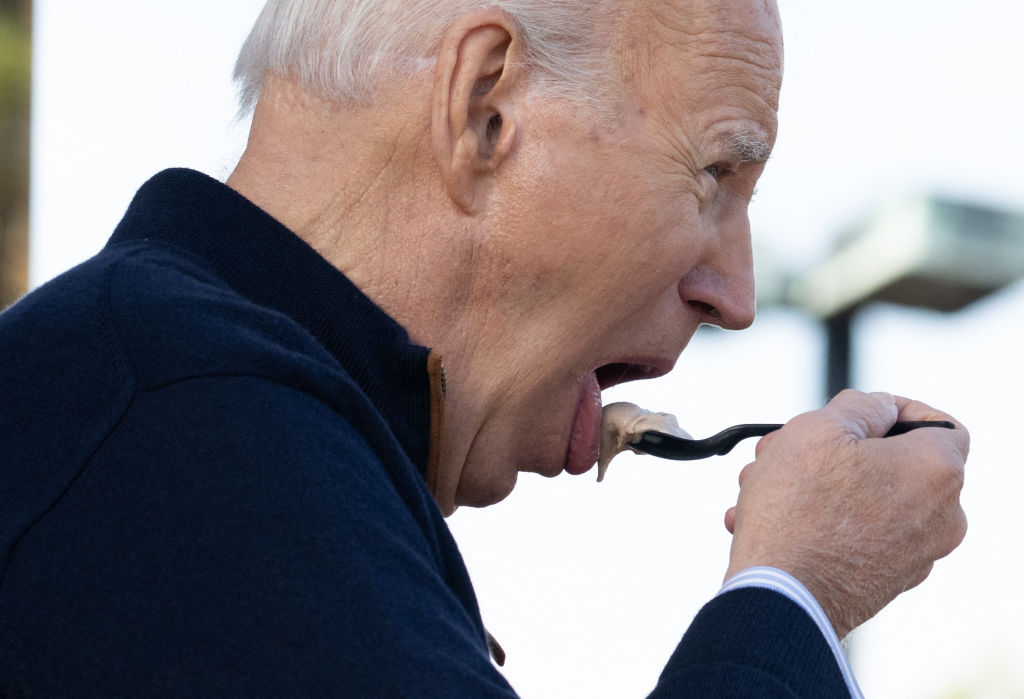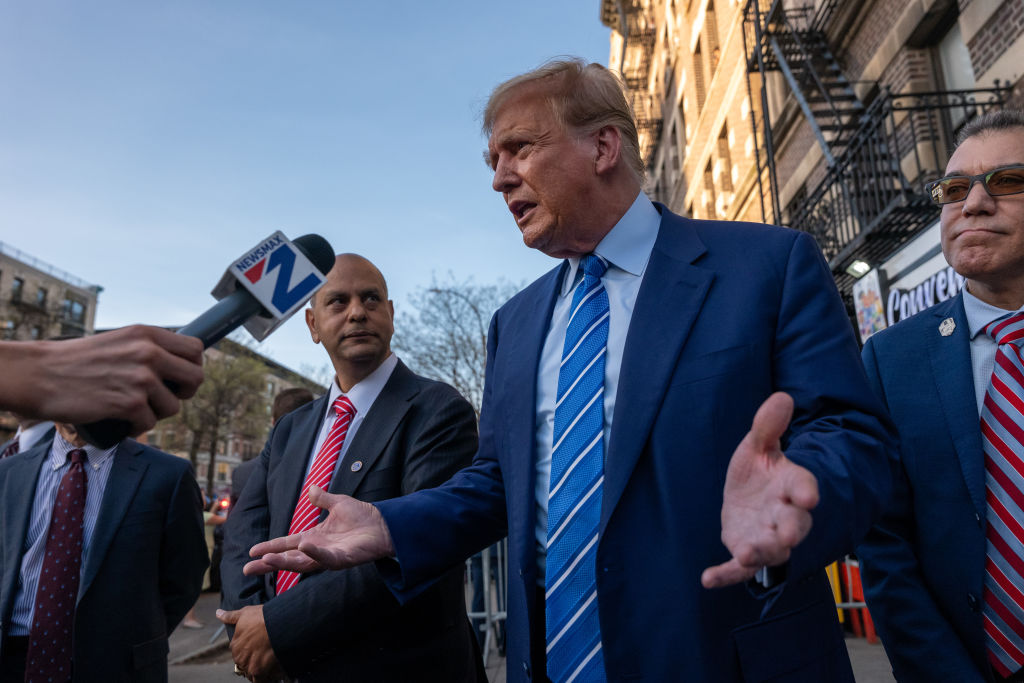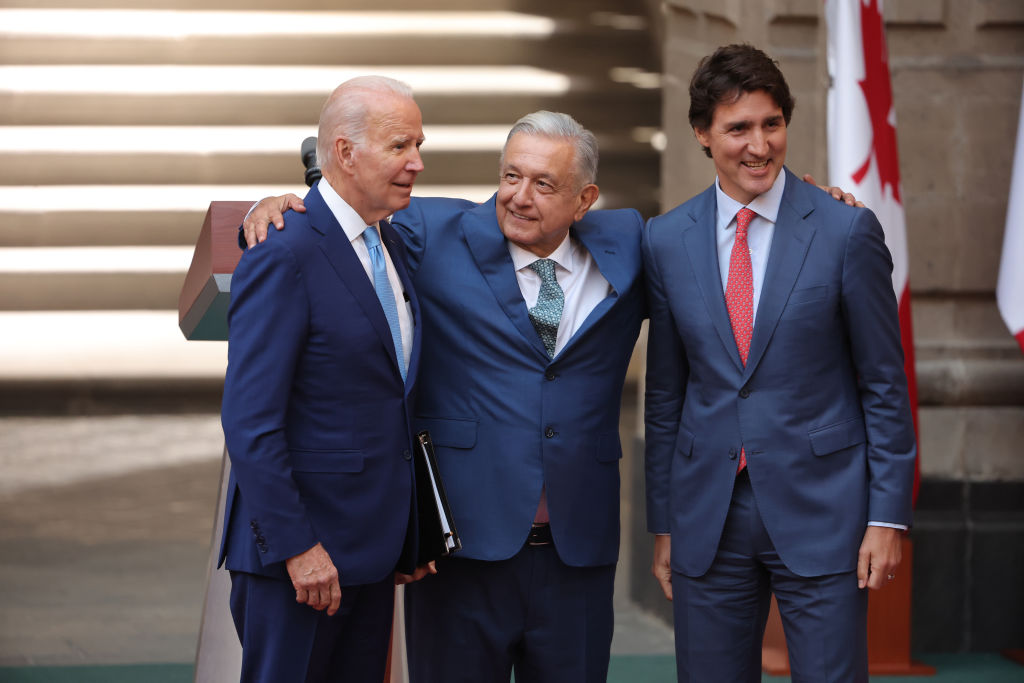The former president will be a force to reckon with in the fall.
General Coup
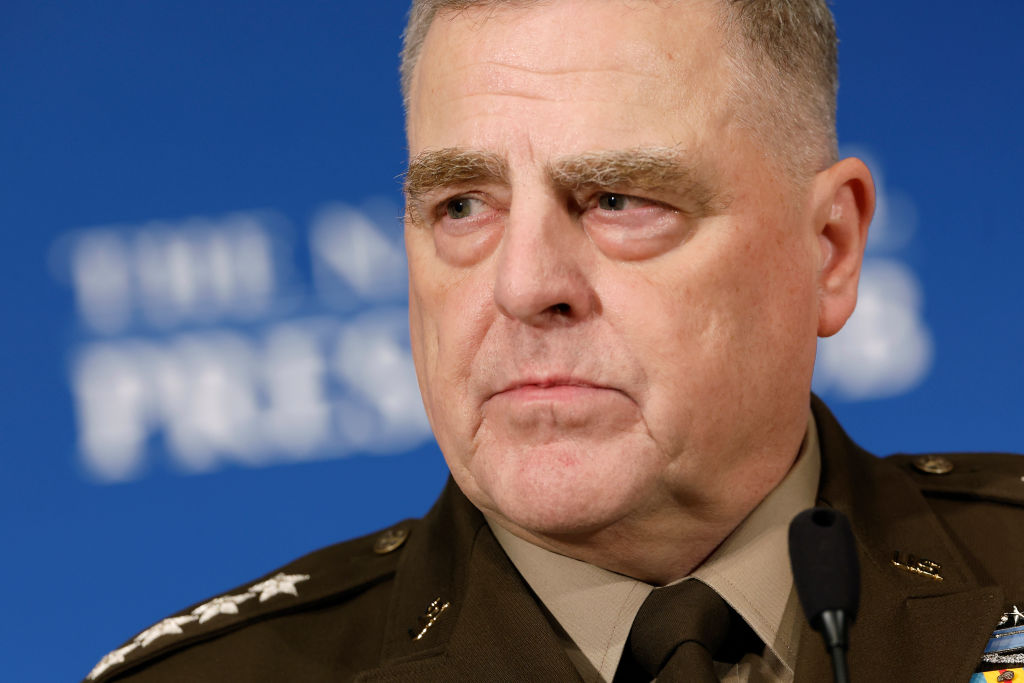
Let’s be honest about Mark Milley’s legacy.
To read the voluminous coverage of General Mark Milley’s retirement as chairman of the Joint Chiefs of Staff, one might mistakenly surmise that he is the greatest military patriot since George Washington. But the opposite is far closer to the truth.
Promoted as the supposed savior of the republic by a well-orchestrated public relations campaign and a fawning press, Milley exhibited ambitions more akin to those of a partisan military commissar than the nation’s senior military adviser under the authority of the president. His tenure proved destructive to post-WWII civil-military norms, the integrity of the military chain of command, and the image of the U.S. military as being worthy of public trust.
Milley supervised a subversive revolution in military culture. Under his watch, the various branches of the armed forces began allowing drag shows on installations and stocked base libraries with pornography. Puppy-masked military officers performed sexual acts on each other—and later boasted about it online.
On the battlefield, Milley was no better. He oversaw the greatest recruiting crisis in history, the failed evacuation of Afghanistan, and the forced removal of thousands of patriots who stood up to an illegal shot mandate. Yet at the slightest hint of criticism, Milley wrapped himself in the uniform and castigated critics as “people who don’t know what they’re talking about.”
Mark Milley may be the greatest uniformed antagonist to the U.S. Constitution and the rule of law today. His tenure was that of a strongman who accelerated a silent coup by the defense establishment.
A Serial Violator of Traditions
Milley was the most openly partisan chairman in the history of the office. Under Donald Trump, he proved a strong institutionalist who bristled at being questioned, insisted that the uniform was the highest form of virtue, and believed the military’s role was superior to that of its civilian supervisors and citizen stakeholders.
Even in retirement, he still goes out of his way to derogate Trump, who departed the White House nearly three years ago. In his swansong interview with the Atlantic’s editor-in-chief Jeffrey Goldberg, Milley shared unflattering and previously unreported details about his relationship with the former president. (He even called Trump a “wannabe dictator” in his retirement remarks delivered from Fort Myer on September 29.)
However, when asked for his thoughts on President Biden’s disastrous decisions as the current commander in chief, the best Milley could come up with was, “This country doesn’t want generals figuring out what orders we’re going to accept.” That statement is of course contradicted by his insistence in January of 2021 that presidential orders to military combatant commanders be passed through him for approval. Not only was that a direct attempt to circumvent the chain of command, it was an unlawful directive that could have delayed needed military action should the nation have faced an attack. He has yet to face accountability for that usurpation of authority.
As chairman, the only voices Milley answered to were critics of the president who nominated him. Unlike his predecessors, he gloried in self-promotional press coverage, limiting interviews to known left-leaning journalists who were favorable to his positions. In his Atlantic interview, even though General Milley admitted, “President Trump never ordered me to tell the military to do something illegal. He never did that,” Milley still portrayed himself as the lone protector of the nation.
Not only was Milley a partisan as chairman, he went out of his way to make it obvious.
In the summer of 2017, it was reported that then-Army Chief of Staff Milley rebuked President Trump’s decision to rescind the Obama Administration’s mandate to open the ranks to so-called transgender troops. This public contradiction of the commander in chief was well out of the norm for senior military officials.
Thus Trump appointed a man who by tradition should have acquiesced to retirement after serving as the Army Chief of Staff, a man who had publicly displayed a rift with his commander in chief. Whatever the president’s reasoning for this appointment, Milley was bound to be a very different kind of chairman. Contrary to his oath, Milley used the office against Trump as commander in chief through to his final moments in office.
Political Realities of Officership
The question is not whether Milley should or should not have acted in a political manner. The office is inherently political, regardless of who inhabits it. The chairman works closely with the president, and his advice has strategic implications for domestic and foreign policy. The question is how much Milley should have inserted himself into matters that the military, as a matter of tradition, usually recognizes as the domain of the elected branches of government. As far as civil-military norms in this Huntingtonian age go, Milley broke this tradition and clearly conducted himself as a partisan official.
Douglas MacArthur was the last U.S. general who was as comfortable challenging a president’s policy position publicly as Milley. Yet even MacArthur, a man who helped lead U.S. forces to victory in the Pacific during World War II, never attempted to place himself atop the civilian chain of command. He was nevertheless relieved from his position for differing with the president in public.
In contrast, Milley became a symbol of a cabinet institution that is at near-peer level with the presidency. He had a strong voice in ideological—and thus partisan—debates, which according to recent polling data is having severe implications for public trust in the military.
Milley unapologetically undermined the command of Donald Trump while enabling and defending President Biden’s disastrous military and foreign policies. He now defends these partisan efforts of fomenting a soft coup by falsely implying that Trump wanted a war with China. Yet Milley faithfully served President Biden, whose decisions on Afghanistan green lighted the war in Ukraine, an actual war that grows costlier in both lives and dollars by the day.
So concerned about Russia’s invasion of Ukraine, Milley’s Defense Department announced it would continue paying Ukrainian workers should the U.S. government experience a shutdown; members of the U.S. military do not rate similar favor. If only Milley showed the same concern for the invasion happening at the southern border.
Milley justifies such actions with an appeal to his righteousness as a guardian of the Constitution. One might expect that from a banana republic strongman—but it should not be the hallmark of a U.S. military officer.
More recently, the Biden Administration indirectly funded Hamas’s invasion of Israel, America’s greatest ally in the Middle East. This happened just one week after Milley left office, his full attention on trashing Donald Trump and grandstanding for legacy rather than preserving peace. An honest assessment of that legacy should include serving a president who enabled the start of two major wars.
Milley’s tenure has reawakened a conversation about the role of the military in American society that goes back to the nation’s founding. The founders knew well the impact a large, standing, ground-based military force on American soil could have on domestic matters. Their wisdom rings true again. The question is whether Milley was a temporary departure from civic traditions or if his tenure marks the beginning of a transformation of the chairman’s role as military advisor into Czar of the Armed Forces.
Though Americans are largely disconnected from discussions over who serves as the nation’s senior generals and the lawful roles of those officers, they should take an interest. The military must return to real public accountability. But it will not do this voluntarily. As the banners proclaiming the deity of General Milley are taken down, we must not let the lessons of his unaccountable reign as chairman be lost. If we want the military to respect civilian oversight again, it is time for the public to demand that Congress confine the institution and its senior officials to their constitutional roles.
The American Mind presents a range of perspectives. Views are writers’ own and do not necessarily represent those of The Claremont Institute.
The American Mind is a publication of the Claremont Institute, a non-profit 501(c)(3) organization, dedicated to restoring the principles of the American Founding to their rightful, preeminent authority in our national life. Interested in supporting our work? Gifts to the Claremont Institute are tax-deductible.
America’s foreign policy drowns at the water’s edge.
Democrats are laying the groundwork for revolution right in front of our eyes.
They can bankrupt or jail their enemies, but that will never legitimate their corrupt regime.
Alvin Bragg’s indictment of Donald Trump abuses any definition of fraud.
Mexico’s president has America hooked on what he’s selling.

